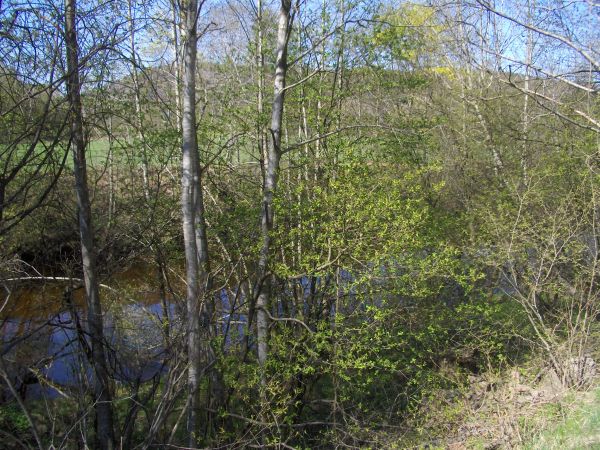Friday 24 August 2007

|
Pic of the day: Growing forest, solar-powered carbon sequestering. Forest vs biofuelRegular readers already know how I feel about ethanol as fuel, particularly ethanol made from corn (maize) grown in highly developed countries. It takes about as much fossil fuels to grow and process as it saves, and raises food prices for the poor all over the world. I wrote extensively about this on July 22. I don't exactly change my mind after reading this small article in New Scientist. (I may have neglected to inform you that I took out a year's subscription to New Scientist around this time. This does not help curtail global warming, though, quite the opposite, as they insist on sending me an issue in print each week, and by air mail at that. I wish they would offer an internet-only subscription like The Economist does.) Anyway, the article sensibly points out that over the course of 30 years, a newly planted forest stores a lot of carbon from the atmosphere. After all, this is why wood burns once it is dry: It contains a lot of un-oxidized carbon (and some hydrogen). By planting forests in the cornfields, we can soak up so much carbon that we can keep burning fossil fuels at the present rate and still get less greenhouse effect than if we switched to ethanol. Let me add the obvious fact that once those 30 years are over, the trees are pretty big and can be cut down and stored in a dry place. The carbon will mostly stay there, not going back into the atmosphere until we burn the trees. Which we can always do at some much later time if we find that the planet is growing too chilly. Or we could use them for heating instead of fossil fuels in some places, I guess. In any case, trees excel. Think of it as solar-powered carbon sequestering. Surely this must be more efficient than using other energy sources to extract CO2 from power plants or oil rigs and sequester it in the ground. Plants have been doing this for several hundred million years. They are experts, optimized for the task. We just don't have any comparable techology today. The plant cells are pure nanotechnology, in the most literal sense of nano. They operate at the molecular level. If we had invented trees today, we would so have deployed them all over the planet and been mighty proud about it. Of course, if some new and better way comes up, we can switch. It is not like forests can't be cut down; we did that with stone axes, we can certainly do it today if we need to. But the sad truth is almost certainly that we won't go for the safe, cheap alternative. There is too much money changing hands between politicians and special interest groups in the rich countries. Where money comes in, common sense leaves. We have seen that too often before. When will they ever learn? |
Yesterday <-- This month --> Tomorrow?